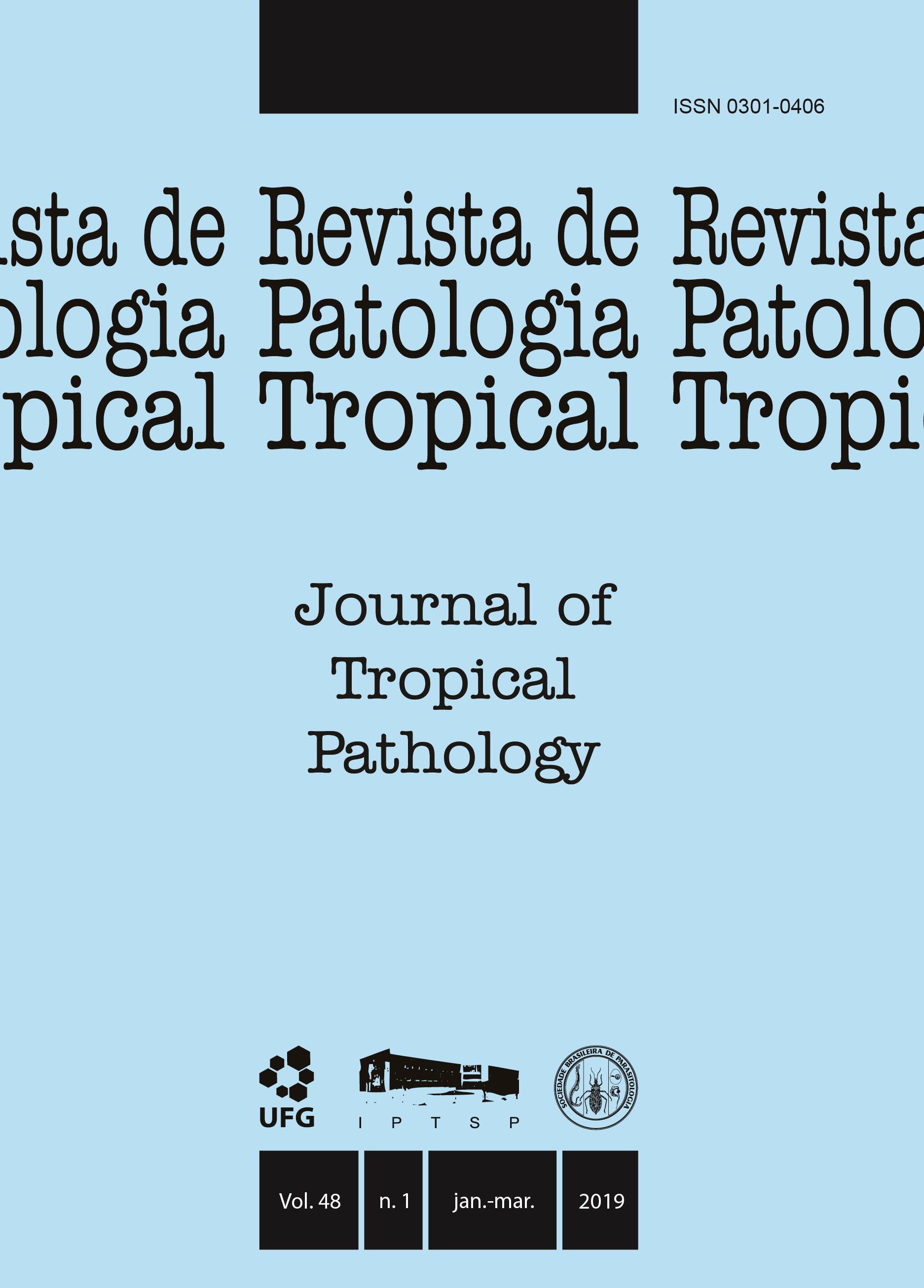WILLIS METHOD MODIFICATION WITH A VIEW TO IMPROVING ROUTINE COPROPARASITOLOGICAL DIAGNOSIS
DOI:
https://doi.org/10.5216/rpt.v48i1.55402Resumo
Intestinal parasites still cause high morbidity and mortality, due to poor hygiene and sanitary
conditions, and therefore indiscriminate treatment has been routine practice advocated by the
Public Health staff. Although there is a consensus regarding the need to diagnose such diseases,
this is not performed with the necessary care, due to great demand and the lack of a wide ranged
and highly sensitive technique. In this sense, most clinical laboratories use routine methods for
fecal examination such as the Lutz sedimentation or modified Ritchie methods, which are complete
and easy to execute, but do not have adequate sensitivity to detect low density eggs and protozoan
cysts, especially when there is a predominance of low parasite burdens. In contrast, there are
methods that are based on the flotation of low density developmental forms, namely, the Willis
method (NaCl flotation d=1.120), which is rapid, easy to perform and allows high density egg
flotation but with low sensitivity for protozoan cysts; and the Faust method, which is based on
centrifugal flotation of developmental forms in a 33% ZnSO4 (d=1.200) solution, but with the
disadvantage of being lengthy and requiring a centrifuge. In this study, we verified the applicability
of introducing an alteration in the Willis method, which consisted in the substitution of NaCl by
ZnSO4 in order to combine the advantages of this method with the Faust method. 208 samples were
assessed by the Willis and Ritchie methods and by the proposed method (modified Willis). The
latter proved superior to the other two (? <0,0001 – X2) regarding the detection of protozoan cysts,
but similar to the Ritchie method in regard to other diagnosed parasites, therefore demonstrating
the high potential for the introduction of this modified method in the routine of fecal diagnosis.
Downloads
Downloads
Publicado
Como Citar
Edição
Seção
Licença
The manuscript submission must be accompanied by a letter signed by all authors stating their full name and email address, confirming that the manuscript or part of it has not been published or is under consideration for publication elsewhere, and agreeing to transfer copyright in all media and formats for Journal of Tropical Pathology.

